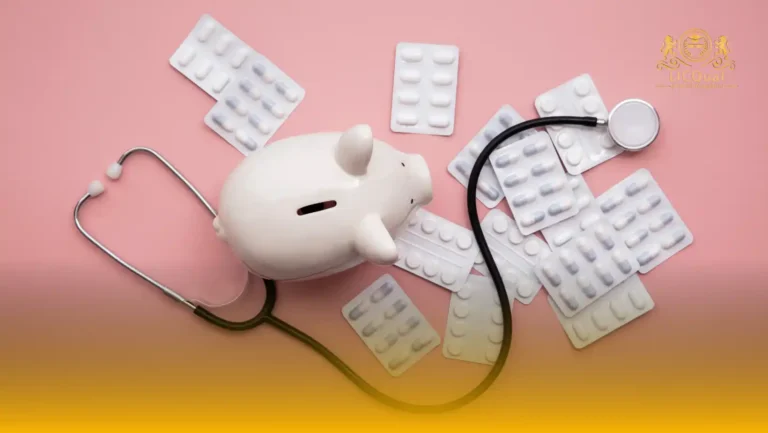The LICQual Level 6 Diploma in Travel Medicine (Dip TM) is an advanced qualification designed for healthcare professionals, clinicians, and medical practitioners seeking to specialize in travel health and medicine. This diploma is not intended for fresh candidates; it is specifically tailored for experienced professionals who wish to enhance their career prospects, broaden their knowledge, and strengthen their Continuing Professional Development (CPD).
Learners undertaking this programme will gain comprehensive expertise in the principles of travel medicine, including the prevention, diagnosis, and management of travel-related illnesses. The course covers immunisation protocols, risk assessment, tropical and infectious diseases, traveller safety, and pre-travel and post-travel consultation strategies. Learners will also develop the skills to assess health risks for travellers, provide evidence-based advice, and implement interventions to safeguard public health.
Centres delivering the LICQual Level 6 Diploma in Travel Medicine are required to maintain the highest standards of training. This includes employing competent and qualified staff, providing access to up-to-date learning resources, and ensuring all necessary facilities and materials are available to support learner success. Such professional infrastructure guarantees a rigorous, practical, and engaging learning environment, allowing learners to apply theoretical knowledge in real-world clinical and travel health settings.
By completing this diploma, learners will enhance their professional credibility, improve traveler health outcomes, and contribute effectively to public health initiatives. Whether aiming to deepen clinical expertise, assume leadership roles, or participate in research and innovation, this qualification equips learners with the knowledge, skills, and recognition necessary to achieve their professional goals in travel medicine.
Course Overview
Qualification Title
LICQual Level 6 Diploma in Travel Medicine (Dip TM)
Total Units
6
Total Credits
120
GLH
480
Qualification #
LICQ2200949
Qualification Specification
To enroll in the LICQual Level 6 Diploma in Travel Medicine (Dip TM), applicants must meet the following criteria:
|
Qualification# |
Unit Title |
Credits |
GLH |
|---|---|---|---|
|
LICQ2200949-1 |
Foundations of Travel Medicine |
20 |
80 |
|
LICQ2200949-2 |
Risk Assessment and Pre-Travel Consultation |
20 |
80 |
|
LICQ2200949-3 |
Infectious and Tropical Diseases in Travelers |
20 |
80 |
|
LICQ2200949-4 |
Vaccination, Immunization, and Preventive Interventions |
20 |
80 |
|
LICQ2200949-5 |
Research, Evidence-Based Practice, and Travel Health Innovation |
20 |
80 |
|
LICQ2200949-6 |
Professional Practice and Continuing Development in Travel Medicine |
20 |
80 |
By the end of this course, learners will be able to:
Unit 1: Foundations of Travel Medicine
By the end of this unit, learners will be able to:
- Critically evaluate the principles, scope, and historical development of travel medicine.
- Analyse the global distribution and epidemiology of travel-related diseases.
- Demonstrate understanding of ethical, legal, and professional considerations in travel medicine.
- Assess the role of travel medicine in public health, prevention, and patient safety.
Unit 2: Risk Assessment and Pre-Travel Consultation
By the end of this unit, learners will be able to:
- Conduct comprehensive traveller risk assessments based on destination, activities, and health status.
- Apply pre-travel consultation techniques to provide personalised health advice.
- Develop immunisation and prophylaxis plans tailored to individual travellers.
- Identify and manage travellers with special needs, including vulnerable populations.
Unit 3: Infectious and Tropical Diseases in Travellers
By the end of this unit, learners will be able to:
- Critically appraise common infectious and tropical diseases affecting travellers.
- Apply diagnostic techniques and interpret laboratory results accurately.
- Evaluate evidence-based treatment options for travel-related illnesses.
- Recognise emerging infectious disease threats and their implications for traveller health.
Unit 4: Vaccination, Immunisation, and Preventive Interventions
By the end of this unit, learners will be able to:
- Demonstrate knowledge of vaccine-preventable diseases relevant to international travel.
- Develop and implement personalised immunisation schedules for travellers.
- Apply prophylactic interventions, including malaria prevention and other chemoprophylaxis measures.
- Identify, manage, and report adverse reactions associated with vaccination.
Unit 5: Research, Evidence-Based Practice, and Travel Health Innovation
By the end of this unit, learners will be able to:
- Critically appraise current research and emerging trends in travel medicine.
- Design and evaluate clinical audits, outcome measures, and preventive strategies.
- Apply evidence-based practices to enhance traveller care and public health interventions.
- Utilise research findings to inform policy, health promotion, and innovative practice.
Unit 6: Professional Practice and Continuing Development in Travel Medicine
By the end of this unit, learners will be able to:
- Demonstrate knowledge of professional ethics, governance, and standards in travel medicine.
- Apply leadership and management skills in clinical and public health settings.
- Plan and engage in Continuing Professional Development (CPD) to maintain professional competence.
- Implement reflective practice strategies to evaluate performance and improve traveller care.
The LICQual Level 6 Diploma in Travel Medicine (Dip TM) is designed for healthcare professionals who want to specialize in travel health, disease prevention, and global patient care. This course is ideal for doctors, nurses, pharmacists, and allied health practitioners seeking advanced skills, practical knowledge, and professional recognition. Whether you aim to advise travelers, improve patient outcomes, or advance your career in travel medicine, this Level 6 Diploma equips you with the expertise to excel.
Healthcare Professionals
- Doctors, general practitioners, and specialists advising international travelers
- Nurses working in clinics, hospitals, or community health centers
- Pharmacists providing vaccinations and travel health guidance
- Allied health professionals involved in preventive healthcare
- Professionals seeking UK Level 6 recognized qualification
- Healthcare workers aiming to enhance patient care and clinical skills
Travel Health Advisors
- Professionals managing vaccination programs for travelers
- Clinicians providing pre-travel assessments and consultations
- Practitioners advising on travel-related illnesses and precautions
- Specialists implementing evidence-based preventive measures
- Advisors aiming to improve traveler safety and health outcomes
- Professionals integrating global health guidelines into practice
Public Health and Community Workers
- Public health officers involved in travel health and safety
- Professionals running awareness programs on infectious diseases
- Community health workers advising travelers on preventive care
- NGO staff supporting global health initiatives
- Practitioners aiming to reduce travel-related health risks
- Individuals contributing to public health education and programs
Students and Graduates
- Medical, nursing, and pharmacy students seeking specialization
- Recent graduates aiming for clinical or advisory roles
- Individuals pursuing postgraduate diplomas for career advancement
- Students wanting both theoretical knowledge and practical skills
- Learners seeking UK Level 6 recognized certification
- Graduates preparing for professional roles in travel and preventive medicine
Career Advancers
- Healthcare professionals aiming for promotions or leadership roles
- Practitioners seeking specialized positions in travel medicine services
- Individuals wanting recognized certification to validate expertise
- Professionals targeting advanced responsibilities in healthcare
- Clinicians aiming to enhance employability and career prospects
- Professionals seeking to expand knowledge in preventive care
Clinical Practitioners
- Doctors and nurses managing travel-related health risks
- Professionals providing vaccination and preventive care advice
- Practitioners monitoring and managing infectious diseases
- Healthcare workers implementing patient-centered travel health strategies
- Clinicians aiming to improve confidence in managing travelers’ health
- Professionals integrating global health protocols into practice
To deliver the LICQual Level 6 Diploma in Travel Medicine effectively, centres must maintain high standards of professional expertise, facilities, and learning resources. The following requirements are essential:
- Qualified and Competent Staff: Centres must employ experienced clinicians, travel medicine specialists, and healthcare professionals with recognised qualifications. Staff should be capable of delivering both theoretical knowledge and practical guidance.
- Comprehensive Learning Resources: Centres should provide learners with access to up-to-date textbooks, research publications, clinical guidelines, case studies, and digital learning platforms to support evidence-based practice and advanced learning.
- Clinical and Public Health Facilities: Centres must ensure access to clinical consultation rooms, vaccination facilities, laboratories, and relevant health resources to facilitate practical training and skill development.
- Assessment and Evaluation Systems: Centres must implement robust systems for learner assessment, feedback, and progression tracking to ensure all learners achieve the required competency standards.
- Health and Safety Compliance: Centres are required to adhere to all relevant health, safety, and regulatory standards, providing a safe and professional learning environment for all learners.
- Support for Continuing Professional Development (CPD): Centres should actively support learners in CPD activities, reflective practice, and ongoing professional development in travel medicine to maintain clinical competence.
Meeting these requirements ensures that learners receive a high-quality, professional, and engaging learning experience, equipping them with the knowledge, skills, and confidence to succeed in advanced clinical, public health, and travel medicine roles.
Assessment and Verification
All units within this qualification are subject to internal assessment by the approved centre and external verification by LICQual. The qualification follows a criterion-referenced assessment approach, ensuring that learners meet all specified learning outcomes.
To achieve a ‘Pass’ in any unit, learners must provide valid, sufficient, and authentic evidence demonstrating their attainment of all learning outcomes and compliance with the prescribed assessment criteria. The Assessor is responsible for evaluating the evidence and determining whether the learner has successfully met the required standards.
Assessors must maintain a clear and comprehensive audit trail, documenting the basis for their assessment decisions to ensure transparency, consistency, and compliance with quality assurance requirements.







